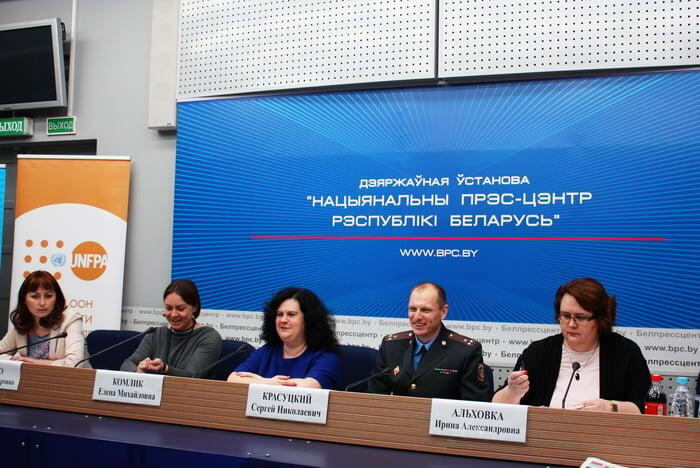The 2.2 million USD project will train Afghanistan's National Police Force and other key legal actors to better respond to violence against women and girls
Kabul, March 12, 2014 - The Embassy of Japan and UNFPA, the United Nations Population Fund, signed today a 2.2 million US dollars grant to support the Ministry of Interior to prevent and better respond to violence against women and girls.
It is estimated that around 87 percent of women experience at least one form of physical, sexual or psychological violence in Afghanistan, while around 60 percent of women experience multiple forms of violence. Recent data from the Afghanistan Independent Human Rights Commission recorded more than 3,300 cases of violence against women and girls in a period of six months in 2012.
"These numbers call for the need to keep building the national capacity to respond to violence against women in Afghanistan", said Dr. Wilfred Ochan, UNFPA Representative a.i. in Afghanistan. "Fathers, husbands, brothers, relatives-in-law, and community members are among the perpetrators of such violence. When women are subjected to violence they need friendly, reliable and trusting services they can turn to for help. Building a trained and sensitized law-enforcement system is the ultimate goal this project aims to, so women in Afghanistan will be able to exercise their right to be protected from violence".

Under the project signed today, Afghanistan's National Police Force and other key legal actors responsible to prevent, investigate and punish acts of violence against women, will be trained in seven provinces to further understand and address this issue in the context of the Afghan Law and Islam.
"We are proud to support the law-enforcement officials to better address the issue of violence against women in order to ensure protection of the rights of women and girls in Afghanistan. Japan recognizes the efforts made by the Government of Afghanistan to promote women's rights through measures and legislations such as the National Action Plan for Women in Afghanistan (NAPWA) and the Elimination of Violence against Women (EVAW) Law, particularly we acknowledge the release of the implementation report of EVAW law. Their implementation and enforcement are vital to promotion and protection of women's rights in this country and part of the commitments of the Afghan government in the Tokyo Mutual Accountability Framework," said Mio Maeda, Deputy Chief of Mission of the Embassy of Japan, during his remarks at the signing ceremony.
As a request by the Ministry of Interior, the two-year project funded by the Government of Japan will target the provinces of Ghor, Herat, Badghis, Farah, Balkh, Jawzjan and Faryab. Police at district and provincial level working in departments where cases of gender-based violence are usually processed will be the primary focus.
Other legal actors such as judges, prosecutors, lawyers, ministries' staff and NGOs will be also part of the training activities in order to build a national coordinated response to gender-based violence. The use of standard procedures, ethical guidelines and data collection processes will also be addressed by the project, together with a public communication campaign to raise awareness of women's rights and the negative consequences of violence against women.
"According to the Afghanistan Constitution: Article # 54: Family is the fundamental pillar of the society, and shall be protected by the state. The state shall adopt necessary measures to attain the physical and spiritual health of the family, especially of the child and mother, upbringing of children, as well as the elimination of related traditions contrary to the principles of the sacred religion of Islam," said General Hekmat Shahi Rasooli, Head of the Gender and Human Rights Department from Ministry of Interior Affairs. "And according to EVAW law article number 13 the Ministry of Interior is responsible to provide protective and preventive measures in public for elimination of violence against women".
This project is part of overall UNFPA effort, together with the Government of Japan to build the capacity of different institutions in the Afghan Government, including Ministry of Women's Affairs, Ministry of Public Health and Ministry of Interior to combat violence against women.


